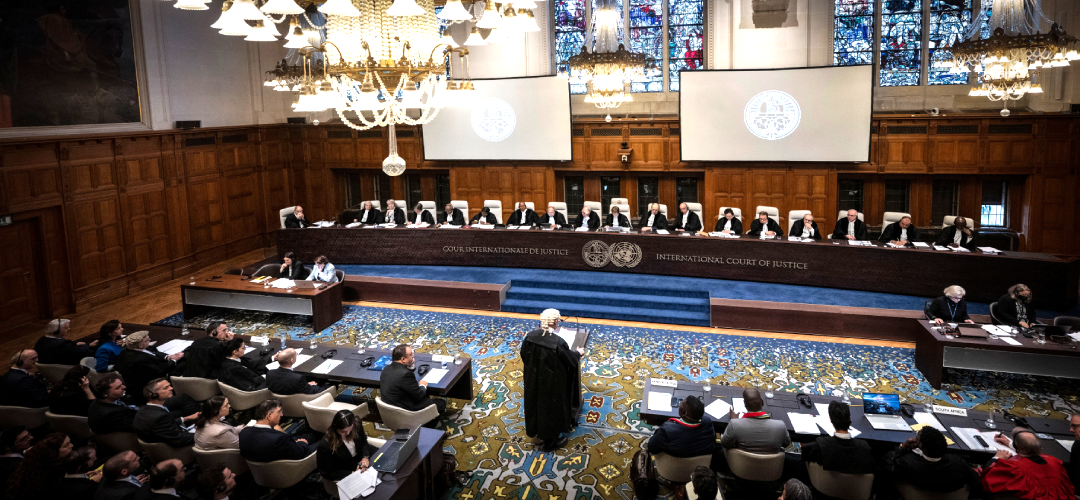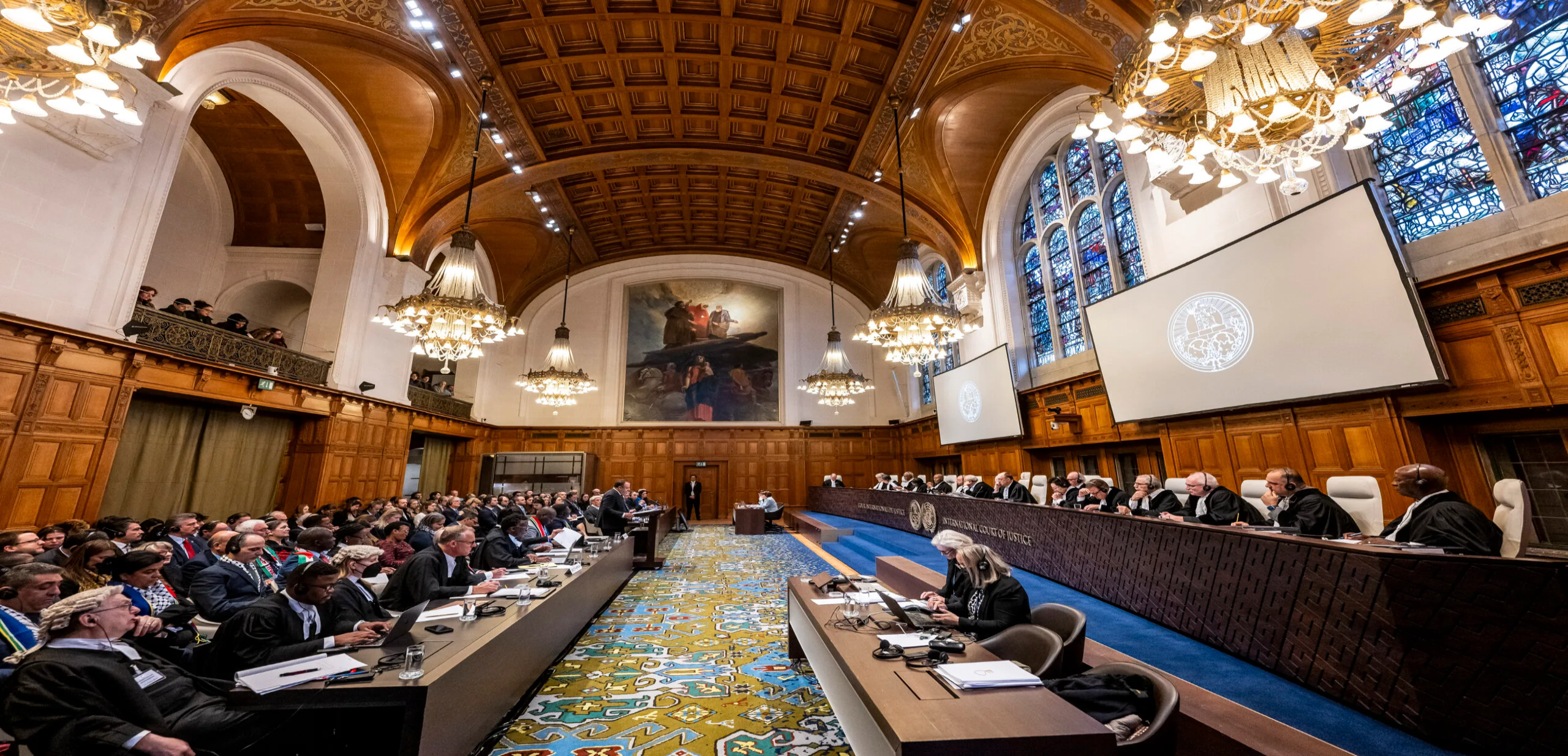Taking Up The Cudgel
January 20, 2024 | Expert Insights

South Africa's unprecedented lawsuit against Israel at the International Court of Justice (ICJ), accusing it of genocide in Palestine, has sent shockwaves through the international community. This move has ignited a firestorm of debate, raising crucial questions about accountability, international law, and the future of Western power dynamics.
South Africa's charges argue that Israel's military actions in Gaza, particularly the targeting of civilians, constitute acts of genocide under the 1948 Genocide Convention. Moreover, they claim that Israel's broader policies of occupation, discrimination, and denial of self-determination toward Palestinians form a sinister context of oppression that fuels the conflict.
The ICJ's decision on whether to proceed with the case and potentially issue a preliminary order against Israel is expected soon. The implications for Western powers and international law remain uncertain, but the potential for a major shift in the global landscape is undeniable.
This case highlights the complex and often conflicting narratives surrounding the Israeli-Palestinian conflict.
Justifying the move, South Africa claims that as a nation, it has a deep understanding of oppression and a history of fighting against apartheid. However, even after the demise of apartheid, its recent history of treatment of immigrants from poorer African neighbours and deep-seated corruption that stunts its potential leaves many questions open upon its claim of a moral high ground.
Background
South Africa claims that its application to the ICJ against Israel for alleged genocide in Gaza is deeply rooted in the nation's history of struggle against apartheid, its longstanding solidarity with Palestine, and its commitment to international law consistently advocated for a two-state solution and Palestinian independence.
South Africa actively opposed Israeli incursions into Gaza, condemned human rights violations, and joined international efforts for a peaceful resolution. In November 2023, during the devastating bombing of Gaza, President Cyril Ramaphosa convened a BRICS Extraordinary Joint meeting condemning the violence and calling for accountability. Additionally, South Africa was one of five nations referring Israel to the International Criminal Court (ICC) for war crimes investigations. Failing to make any headway along the ICC route, South Africa has now approached the ICJ.
Leading the legal charge is Professor John Dugard, an international law scholar with extensive experience advocating for human rights and accountability. South Africa's application puts the ICJ itself in the spotlight, testing its capacity to uphold the principles of international law and human rights, particularly in the face of a powerful nation like Israel. This case also carries crucial implications for the ICC. While concerns linger about the selectivity of ICC investigations, South Africa's parallel pursuit of both paths – the ICJ and the ICC – sends a message: accountability for human rights violations cannot be evaded through political influence or manoeuvring.

Analysis
The ICJ must first determine whether it has jurisdiction over the case, a hurdle Israel is expected to vigorously contest. The Court's internal dynamics, with judges representing diverse nations and political leanings, could also influence the proceedings.
As the legal battle unfolds, a complex web of political and moral dilemmas ensnares Western powers, particularly the US, in a precarious balancing act. Western powers have long championed these principles as cornerstones of a rules-based international order. Conceding in this case could undermine their credibility and legitimacy on the global stage, setting a dangerous precedent for future human rights abuses.
Furthermore, internal pressures cast a long shadow. Public opinion in the West is increasingly critical of Israel's actions toward Palestinians, with growing vocal support for accountability and justice. Governments face pressure from citizens to adopt a more nuanced stance, potentially jeopardizing domestic stability and political alignments. The international community's role further complicates this balancing act. The United Nations and other human rights organizations are expected to influence the case's outcome and ensure accountability for potential violations. Their actions and pronouncements will be closely scrutinized, potentially shaping the narrative surrounding the conflict and influencing public opinion across the globe.
The potential for increased diplomatic tensions and even violence in the region cannot be ignored. The ICJ case has already served as a potent flashpoint, and a ruling deemed unfavourable by either side could exacerbate existing hostilities. Restraint and a commitment to dialogue will be essential in mitigating the risk of escalation and fostering conditions for a peaceful resolution. Beyond the immediate implications, the long-term impact of this case on the Israeli-Palestinian peace process remains a significant puzzle. The ICJ's verdict could potentially break the current impasse, opening up new avenues for negotiation and reconciliation. Conversely, it could also solidify existing divisions, further entrenching the status quo and making achieving lasting peace even more elusive.
Assessment
- Ultimately, the South Africa vs. Israel case at the ICJ serves as a crucible for Western power dynamics in the 21st century. It compels these nations to confront a stark reality: the world they once dominated is changing.
- This legal battle is not merely a courtroom drama; it is a microcosm of a larger struggle for a new vision of international relations. It is one where power is not wielded unilaterally but exercised with accountability and adherence to international law.
- As the world watches with bated breath, the outcome of this case will not only determine the fate of the Israeli-Palestinian conflict but also redefine the role of Western powers in a reshaped global landscape.








Comments